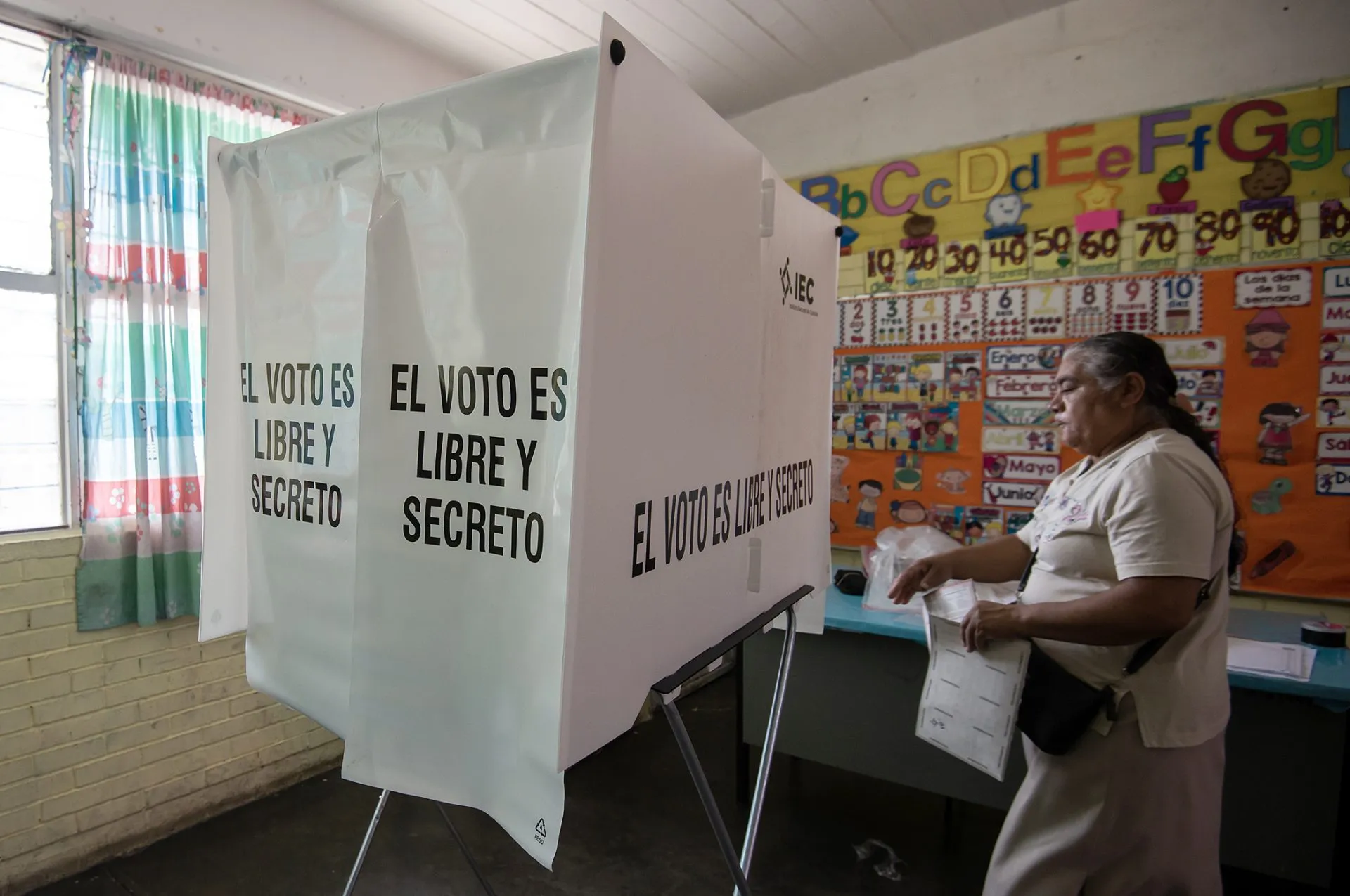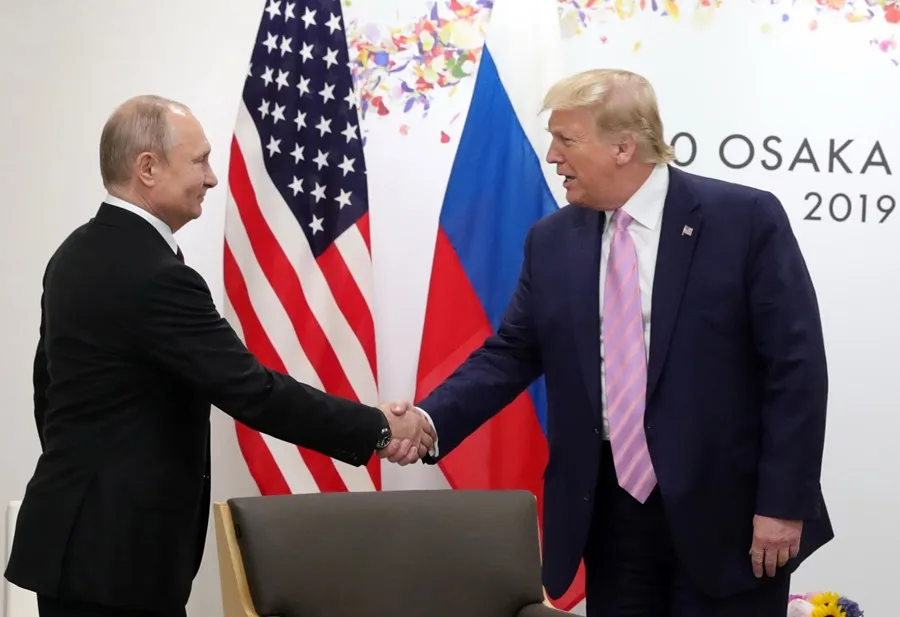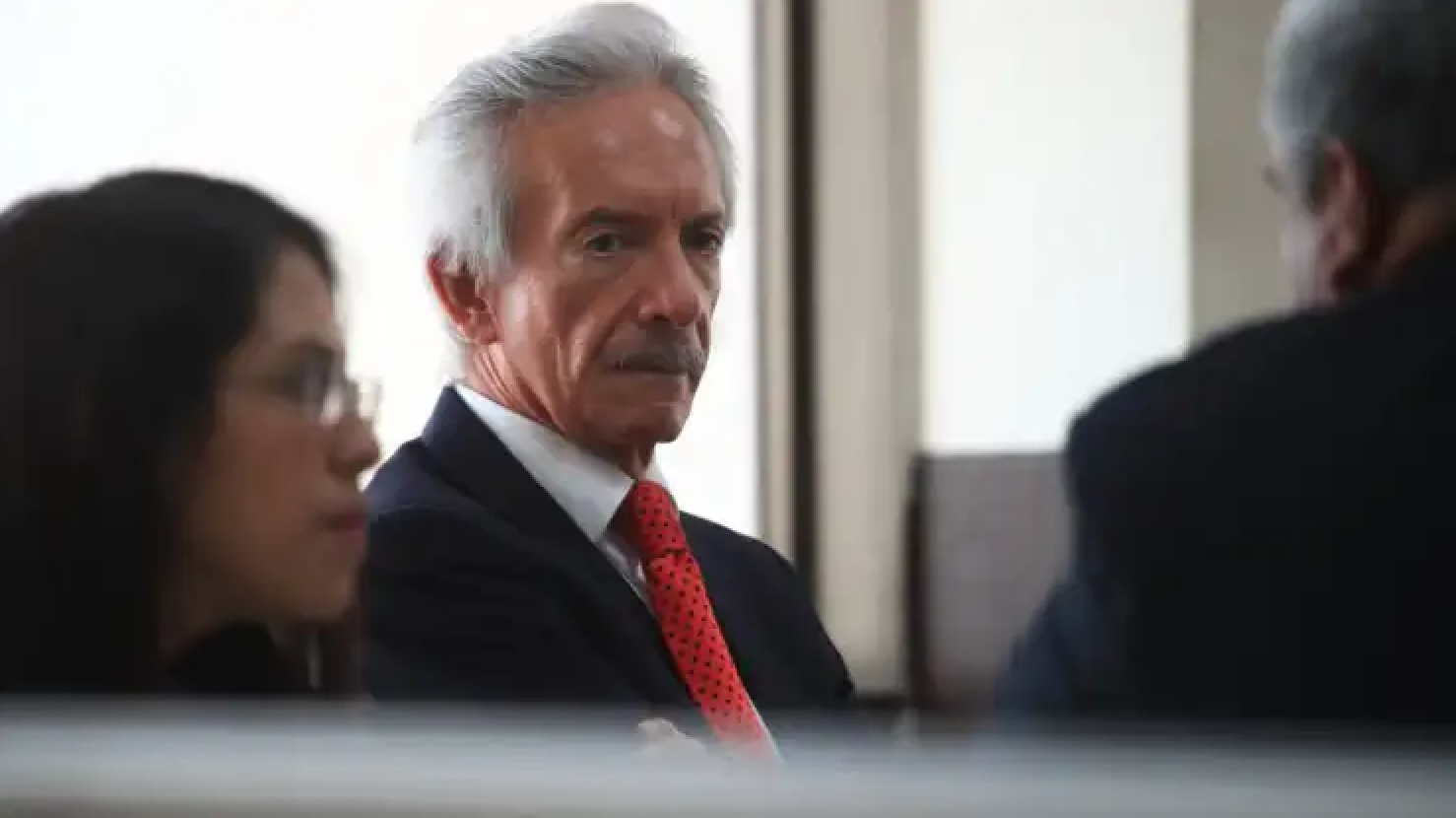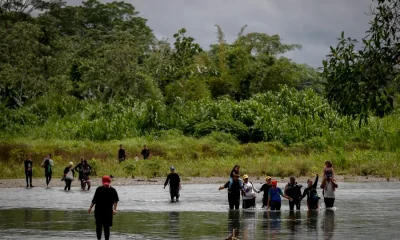International
Candidates in Mexico face the last debate without mobilizing the undecided and between insults

The candidates for the Presidency of the opposition in Mexico, Xóchitl Gálvez and Jorge Álvarez Máynez, will have in the third and last presidential debate on Sunday their last chance to shorten the distance with the ruling party, Claudia Sheinbaum, who has led all the polls from the beginning.
This is portrayed by the specialists consulted this Saturday by EFE, Palmira Tapia and Miguel Tovar, who agree to mention, a day before the last confrontation, the bulk of people undecided about who to vote, a figure that, according to the Poligrama survey at the end of April, reaches 6.9%.
“There may be more discussion sessions and the compass still does not move is because something important in terms of information and how it is presented is still not forceful,” the political scientist acknowledges.
In addition, he points out that some polling houses are not treating the situation “neither professionally nor as a democratic exercise.”
In his opinion, some companies “redined” the representation of the undecided in their polls, in a context of urgency on the part of the candidacies to “have data very quickly and at hand.”
The analyst warns that, at this point, “it is difficult to think” that there are “very expectant” layers of population for knowing the proposals of the candidacies: “A good part of these undecided are people who, in plain, are not going to vote.”
Therefore, and since “not being a competitive choice” due to the wide distance in the polls between the two main candidates, he considers that the parties will not be dedicated to mobilizing these people.
Tapia predicts a Gálvez, standard-bearer of the coalition between the National Action Party (PAN), the Institutional Revolutionary Party (PRI) and the Democratic Revolution (PRD), “even more combative”, because the strategy “worked” in the previous debate and “misplaced” Sheinbaum.
“The second debate was more interesting than the first because we saw more contrast of ideas, but also more personal disqualifications, which this is something that attracts the media,” he says.
He believes that this last confrontation, which will be held at the Tlatelolco University Cultural Center, “will be more of this type,” since it is the “last chance” of the opponent to win votes, an opinion that Tovar shares.
Although it clarifies: “Hardly, we will see a different sphin from the one we have seen with ‘you have no heart.’”
The political scientist speculates about the possibility that the applicant of the also opposition Movimiento Ciudadano (MC), Jorge Álvarez Máynez, will depose Gálvez in the second position on June 2.
“The novelty we have is that (…) it seems that it is being attractive to younger people,” he says.
For this last debate, he could combine “some blows” towards his opponents with the image of “candidate of proposals.”
In this sense, Tovar calls it a “meme of politics,” for his song “Presidente Máynez” and “the occurrences” that he has offered in the campaign, and predicts him “a filling profile.”
Despite the climate of apparent tranquility, Tapia recalls that the topics that the debate will address, such as violence and organized crime, are of high tension.
“It is so important that Gálvez has tried to take the issue of security as a flag for his campaign,” he says, and recalls the proposal for a mega-prison that the candidate launched at the start of the electoral race.
“On the side of Sheinbaum, it seems to me that she also has a challenge before her: to defend the position of the president (Andrés Manuel López Obrador) in this matter, (…) but also honoring what she did in Mexico City as Head of Government,” he analyzes.
And, in the lectern of Máynez, he predicts some “very progressive” proposals in this area, since he has positioned himself “against the alleged militarization” of Mexico.
For Tovar, one of the few “more or less different” things left by the triad of debates is MC’s ability to articulate communication campaigns.
“The gentlemen and ladies of MC are great for marketing, to make these yingles so sticky,” he smiles.
International
Trump urges Putin to reach peace deal

On Monday, U.S. President Donald Trump reiterated his desire for Russian President Vladimir Putin to “reach a deal” to end the war in Ukraine, while also reaffirming his willingness to impose sanctions on Russia.
“I want to see him reach an agreement to prevent Russian, Ukrainian, and other people from dying,” Trump stated during a press conference in the Oval Office at the White House.
“I think he will. I don’t want to have to impose secondary tariffs on Russian oil,” the Republican leader added, recalling that he had already taken similar measures against Venezuela by sanctioning buyers of the South American country’s crude oil.
Trump also reiterated his frustration over Ukraine’s resistance to an agreement that would allow the United States to exploit natural resources in the country—a condition he set in negotiations to end the war.
International
Deportation flight lands in Venezuela; government denies criminal gang links

A flight carrying 175 Venezuelan migrants deported from the United States arrived in Caracas on Sunday. This marks the third group to return since repatriation flights resumed a week ago, and among them is an alleged member of a criminal organization, according to Venezuelan authorities.
Unlike previous flights operated by the Venezuelan state airline Conviasa, this time, an aircraft from the U.S. airline Eastern landed at Maiquetía Airport, on the outskirts of Caracas, shortly after 2:00 p.m. with the deportees.
Interior Minister Diosdado Cabello, who welcomed the returnees at the airport, stated that the 175 repatriated individuals were coming back “after being subjected, like all Venezuelans, to persecution” and dismissed claims that they belonged to the criminal organization El Tren de Aragua.
However, Cabello confirmed that “for the first time in these flights we have been carrying out, someone of significance wanted by Venezuelan justice has arrived, and he is not from El Tren de Aragua.” Instead, he belongs to a gang operating in the state of Trujillo. The minister did not disclose the individual’s identity or provide details on where he would be taken.
International
Son of journalist José Rubén Zamora condemns father’s return to prison as “illegal”

The son of renowned journalist José Rubén Zamora Marroquín, José Carlos Zamora, has denounced as “illegal” the court order that sent his father back to a Guatemalan prison on March 3, after already spending 819 days behind barsover a highly irregular money laundering case.
“My father’s return to prison was based on an arbitrary and illegal ruling. It is also alarming that the judge who had granted him house arrest received threats,” José Carlos Zamora told EFE in an interview on Saturday.
The 67-year-old journalist was sent back to prison inside the Mariscal Zavala military barracks on March 3, when Judge Erick García upheld a Court of Appeals ruling that overturned the house arrest granted to him in October. Zamora had already spent 819 days in prison over an alleged money laundering case.
His son condemned the situation as “unacceptable”, stating that the judge handling the case “cannot do his job in accordance with the law due to threats against his life.”
-

 Central America5 days ago
Central America5 days agoNicaragua denounces Costa Rica’s position in SICA as aligned with foreign interests
-

 Central America5 days ago
Central America5 days agoNicaragua’s new judicial law consolidates power in Ortega and Murillo’s hands
-

 Central America5 days ago
Central America5 days agoPanama’s president declares Darién gap ‘closed’ amid sharp drop in migrant flow
-

 International3 days ago
International3 days agoSon of journalist José Rubén Zamora condemns father’s return to prison as “illegal”
-

 International5 days ago
International5 days agoMarco Rubio warns Venezuela against military action against Guyana
-

 International3 days ago
International3 days agoMiyazaki’s style goes viral with AI but at what cost?
-

 Central America2 days ago
Central America2 days agoPanama police clarifies that Interpol alert for Martinelli is still pending
-

 International2 days ago
International2 days agoDeportation flight lands in Venezuela; government denies criminal gang links
-

 Central America16 hours ago
Central America16 hours agoU.S. Homeland Security Secretary urges Mexico to strengthen Guatemala border
-

 International16 hours ago
International16 hours agoTrump urges Putin to reach peace deal
-

 Central America16 hours ago
Central America16 hours agoPanama grants Martinelli 72-hour extension to travel to Nicaragua
-
Central America4 days ago
Nicaragua revokes legal status of 10 more NGOs, bringing total to over 5,600















